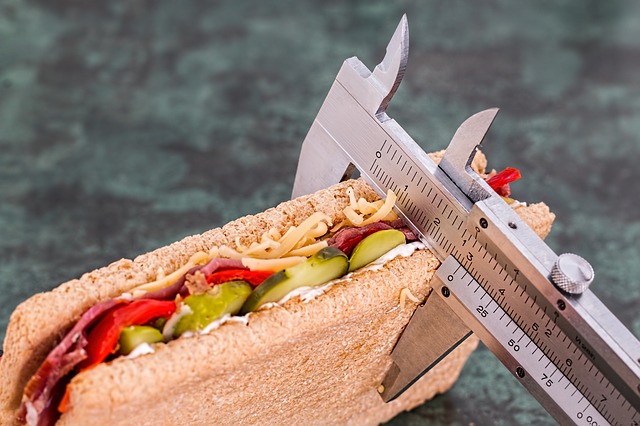We always believe in this philosophy that everyone should take breakfast as it is the right lifestyle practice. It helps in establishing the right body rhythm for your daily life.
We also found an article on why breakfast is essential for losing weight and we thought we should share this with you.
Original Article Summary:
As per Jenni Grover MS RD LDN, eating a healthy breakfast and achieving sustained weight loss are inextricably linked.
The National Weight Control Registry has been tracking the eating and lifestyle habits of about 3000 people, all of whom have maintained a 30-pound (or more) weight loss for at least a year (some have been participating for as many as six years). The researchers tracking these studies found that 78 percent reported eating breakfast every day, and almost 90 percent reported eating breakfast at least five days a week. But why does breakfast help with weight loss?
Reducing hunger
One of the primary reasons breakfast is so effective may be as simple as reducing hunger later in the day. By eating breakfast, you stock up on (hopefully!) healthy fuels which reduces your hunger as the day progresses. This can certainly help prevent overeating in general, and may also help by avoiding times when you snack on the go, for example by purchasing food at vending machines or gas stations, where healthier choices are harder to make.
Skipping breakfast increases insulin response
But it’s not just about reducing temptation. There’s also a physiological response that happens when you skip breakfast. The type of prolonged fasting that occurs when you skip out on that first meal of the day can increase your body’s insulin response, which in turn increases fat storage and weight gain. So it may sound counter intuitive, but going without this vital meal can actually increase your risk of obesity.
Healthy choices
Eating breakfast right can be a great way to get you on track and set the tone for making healthy choices all day. When you eat a breakfast based on whole grains, healthy proteins and fruits, you tend to eat a healthier overall diet, one that is more nutritious and lower in fat. When you skip breakfast, you’re more likely to skip fruits and vegetables the rest of the day, too. Breakfast is the perfect meal to start adding whole foods into your daily meal plan.
More energy
Eating breakfast also gives you energy, which increases your ability and desire to undertake physical activity during the day. A healthy breakfast refuels your body and replenishes the glycogen stores that supply your muscles with immediate energy, meaning you are more likely to go for that run, take a walk or simply go about your daily business and get things done. Conversely, skipping breakfast is associated with decreased physical activity.
The theory is all well and good, of course, but many people who don’t eat breakfast aren’t really skipping it as a conscious decision. They are simply having a hard time fitting it into their busy lives.
Luckily, there are plenty of practical strategies available to you to make sure you eat breakfast. Here are a few of my favorites:1. Prep ahead of timePut smoothie ingredients into individual baggies. Make healthy muffins ahead of time. Consider healthy crock pot recipes like steel cut oats that can be ready for you by the morning.2. Start smallFinding the idea of a complete meal overwhelming? Well, it’s important to remember that something is better than nothing. Start by eating a cup of yogurt and/or a piece of fruit, then as you get used to making time for breakfast, add more foods and food options slowly.3. Wake up earlyGet up 10 minutes earlier than you normally would so you will have time to eat and enjoy your food. Why not make it a treat — read the paper, listen to some music, or sit out in the yard and watch the birds? This should be a pleasure, not a chore.4. Create a routinePick a couple of easy breakfasts and repeat them every other day. This will eliminate having to think about what to make. You can always add more options as you get used to eating breakfast.4. Eat what appeals to youIf eating a little leftover chicken or a few spoons of cottage cheese sounds good, go for it. Who says breakfast has to be cereal, toast or pop tarts?But what is a balanced breakfast?A balanced breakfast consists of three main food groups: a protein and/or a healthy fat, a fruit or veggie, and a grain. Even many convenience foods like breakfast cereals offer healthy options — just be sure to pay attention to the ingredients lists, and lean toward whole grains, fewer ingredients and lower fat, sodium and sugar content.
[feature_box style=”27″ only_advanced=”There%20are%20no%20title%20options%20for%20the%20choosen%20style” alignment=”center”]
Legal Disclaimer
No action should be taken solely on its content; regardless of the perceived scientific merit, instead readers should consult health care professionals on any matter related to their health. The information obtained from referenced materials are believed to be accurate, as presented by their respective authors, but Activa Naturals assumes no liability for any personal interpretation. Readers, previous and future customers who fail to consult their Physicians prior to the purchase and subsequent use of any product, assume the risk of any adverse effects.
Information on this site is provided for informational purposes only and is not meant to substitute for the advice provided by your own physician or other medical professional. The results reported may not necessarily occur in all individuals. Activa Naturals is providing this site and its contents on an “as is” basis and makes no representations or warranties of any kind with respect to this site or its contents. Except as specifically stated on this site, neither Activa Naturals nor any of its directors, employees or other representatives will be liable for damages arising out of or in connection with the use of this site. This is a comprehensive limitation of liability that applies to all damages of any kind, including (without limitation) compensatory, direct, indirect or consequential damages, loss of data, income or profit, loss of or damage to property and claims of third parties. *These statements have not been evaluated by the Food and Drug Administration. This product is not intended to diagnose, treat, cure, or prevent any disease.
[/feature_box]


